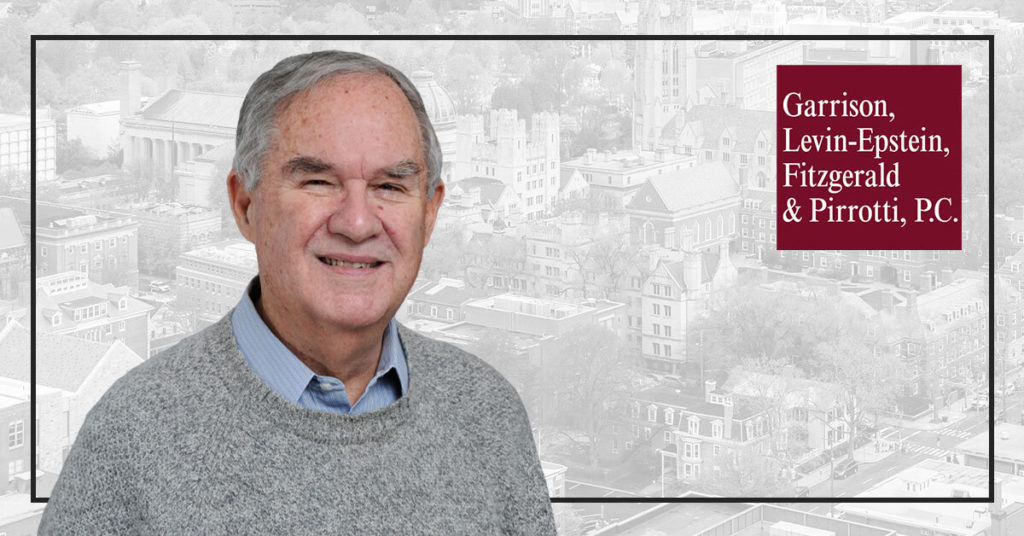Posted by Garrison, Levin-Epstein, Fitzgerald & Pirrotti, P.C. in News
Jun 10 2020
As it appeared on Bloomberg Law
Madison Alder
Reporter
- Judiciary explores changes for future emergencies, but action not likely soon
- Some lawyers, groups want a broad expansion of remote access
U.S. federal courts should loosen rules requiring live testimony and hearings in the event of another national emergency, attorneys told the federal judiciary in recently submitted comments.
Federal rules governing civil and criminal practice that restrict remote proceedings have been a hindrance for lawyers during the Covid-19 pandemic. In the event of another outbreak, attorneys said, there should be clearer language that trials and testimony in civil cases and certain criminal proceedings can be conducted through remote means.
Some attorneys would even like to see those rules expanded outside the context of another emergency, though that sentiment was mostly focused on the civil side.
“It seems to me and many others I’ve talked to that these changes shouldn’t be confined to a pandemic or a national emergency,” Joseph Garrison, who wrote a comment letter for the National Employment Law Association suggesting civil rules changes. Garrison is an attorney at Garrison, Levin-Epstein, Fitzgerald & Pirrotti and liaison to NELA’s Civil Rules Advisory Committee.
Garrison’s was one of about 60 letters received by the Judicial Conference, the policy arm of the federal courts, after it requested public feedback on potential changes in emergency situations.
The CARES Act, enacted in response to the pandemic, required the judiciary to explore potential changes for future national emergencies. But any changes aren’t likely to come quickly, according to the judiciary’s administrative office.
The month-long window for comments closed June 1 and drew responses from trial attorneys, bar groups, law firms, and other parties interested in access to the federal courts. The Judicial Conference’s rules and practice committee will review the comments.
But every advisory committee of the Judicial Conference has its own emergency subcommittee addressing the requirement under the CARES Act, Charles Hall, a spokesman for the Administrative Office of the U.S. Courts, said in an emailed statement.
Recommendations on the need for rules will likely be considered in the fall when the advisory committees meet,” and that committee chairs estimate any rulemaking “will take a period of years, not months.”
The pandemic forced federal courts to suspend most in-person operations. Nearly all federal trial courts suspended or canceled jury proceedings, restricted access to courthouses, and adopted teleconferencing, according to a Bloomberg Law analysis of court orders.
The Judicial Conference allowed courts to conduct remote operations for civil and certain criminal proceedings, and allowed public and media access. But those changes are temporary, and the authorization to do so under the CARES Act will expire 30 days after the pandemic is declared over or whenever the Judicial Conference determines that the federal courts aren’t “materially affected” by the virus.
Federal courts across the country are gradually beginning to reopen with proceedings like grand juries leading the way. Those efforts follow guidance from the administrative office that provided a phased approach to reopening tied to local health conditions.
Lasting Civil Changes
Many of the commenters asking for changes to the Federal Rules of Civil Procedure recommended easing rules governing the availability of witnesses, testimony and how trials are conducted.
“In an age in which arbitration tribunals routinely permit such testimony and state courts routinely conduct arraignments and other steps in criminal proceedings by video, Rule 43(a) is an anachronism,” George Davidson, a lawyer at Hughes Hubbard & Reed, said in a comment letter.
In an interview, Davidson said the rule requiring in-person testimony, Rule 43(a), is too restrictive and provides “paranoid” reasons for not allowing them to be conducted remotely. He and other commenters suggested a national emergency should constitute “good cause” for an exemption from the rule.
Davidson also said he’s used remote testimony during arbitration proceedings and sees value in making them more widely available outside a pandemic so witnesses reluctant to travel can testify.
Garrison, the attorney who wrote the NELA letter, said the rules should be updated to allow bench and jury trials to be conducted by video in certain circumstances.
He also suggested changes to a rule that requires that trials “on the merits must be conducted in open court and, so far as convenient.” That rule, 77(b), doesn’t necessarily prohibit remote proceedings, but he said the wording could be improved to permit remote proceedings during an emergency.
Garrison said using remote proceedings more regularly could help achieve the goal of making federal trial court proceedings more inexpensive and efficient.
Criminal Changes Limited
Commenters also suggested changing a rule prohibiting broadcasts of criminal proceedings, at least during emergencies.
Harry Sandick, who wrote a comment letter for the New York City Bar Association, said that while some civil cases might benefit from remote access, “there’s reason to be wary of moving to a remote system” for criminal cases.
Defendants shouldn’t be forced to testify remotely and must have the ability to opt out of remote proceedings, Sandick said in an interview. He’s an attorney at Patterson Belknap Webb & Tyler and chair of the New York City Bar’s Federal Courts Committee.
Sandick also suggested updating the language of a federal rule that prohibits broadcasts of criminal proceedings so that remote proceedings aren’t barred.
Specifically, Federal Rules of Criminal Procedure 53 prohibits “the taking of photographs in the courtroom during judicial proceedings or the broadcasting of judicial proceedings from the courtroom.”
“There’s a concern that rule 53 doesn’t have the flexibility to allow video arguments to be aired even on appeal,” Sandick said. “So it seemed to us worth pointing out that it should be clarified.”
(Updates with response on timing from the Administrative Office of the U.S. Courts.)
Posted by Garrison, Levin-Epstein, Fitzgerald & Pirrotti, P.C. in News
Tagged COVID-19, Joseph Garrison









